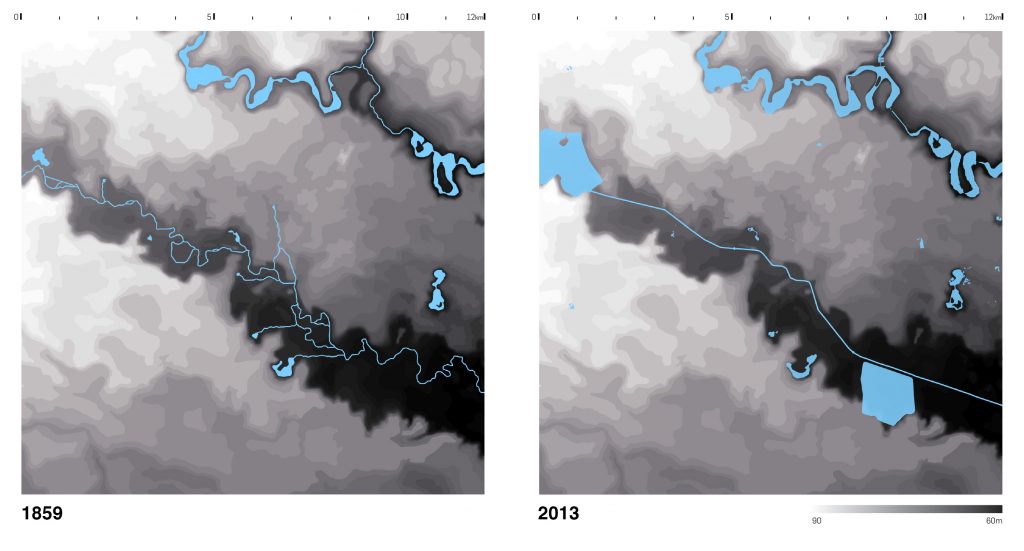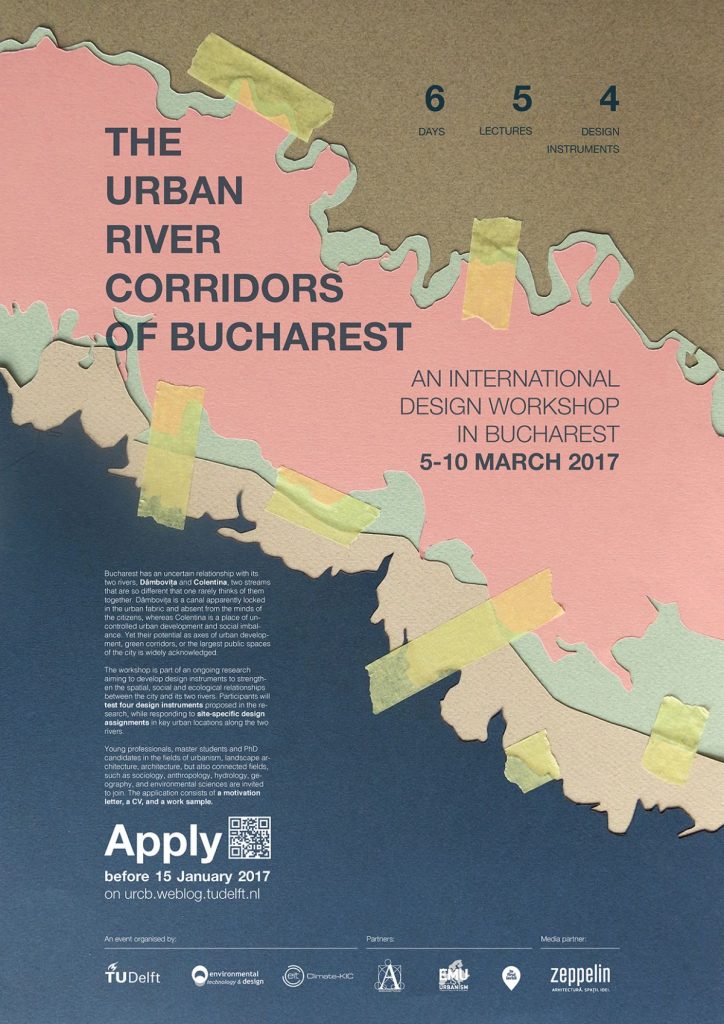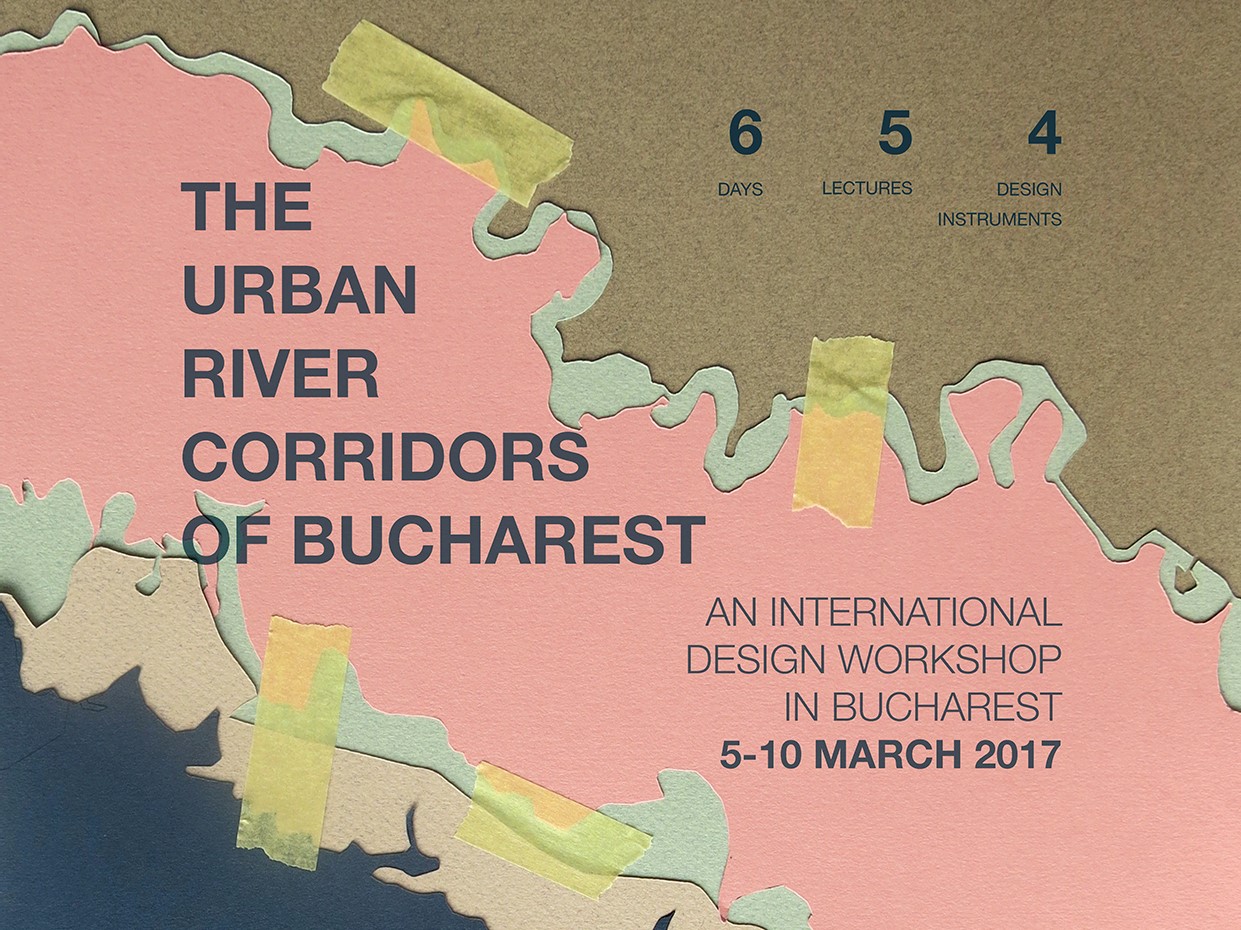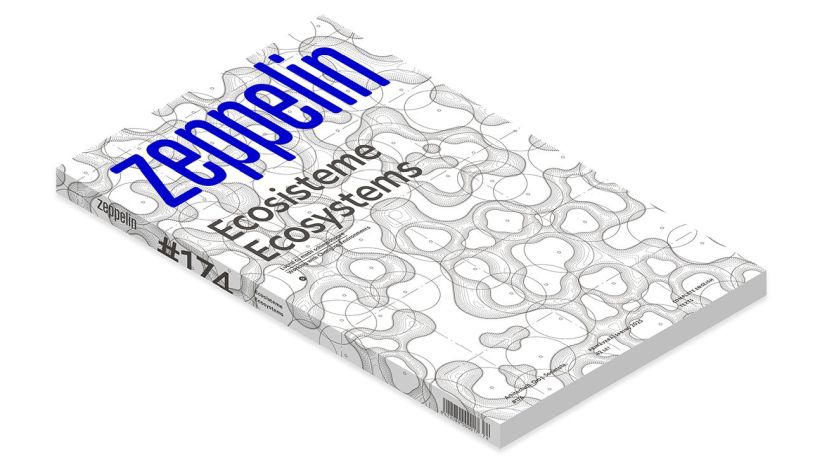5-10 March 2017, Bucharest
Both Dâmbovița and Colentina went through radical transformations throughout their history, yet their presence is hardly felt in the city. Dâmbovița changed, after a two-phased transformation, from a meandering wetland to a canal that today is completely absent from the mental maps of the citizens, whereas Colentina was slowly cut off from the city by an uncontrolled process of piecemeal lake-side privatisation. Besides the obvious need of draining the water through the city, neither one or the other seems to have an overall coherence.
 * Topography in the centre of Bucharest and the transformation of Dâmbovița’s trajectory (Source: Forgaci, 2013, drawing based on Harhoiu, 1997)
* Topography in the centre of Bucharest and the transformation of Dâmbovița’s trajectory (Source: Forgaci, 2013, drawing based on Harhoiu, 1997)
Is it the city that changed too fast and grew indifferent of the two rivers or is it the way the rivers were designed that makes them so absent from the life of the city? These are not easy questions to answer, given the multiple institutional, property-related, spatial-morphological, social-economical, environmental and ecological facets of the problem. Also, given the differences between the two rivers, any attempt to give an answer has to be contextualised for each river. Nevertheless, the dysfunctional relationship between the rivers and the city is a fact that needs attention.
Bucharest is not unique in this sense. All over the world, a growing number of cities have been facing similar challenges and realising the multiple benefits of returning to their rivers. Waterfront developments, renaturalisation projects, waterside promenades, and, with a wider scope, green-blue infrastructure projects are at the forefront of several urban planning agendas. Such projects aim not only for a ‘return to nature’, but also for social-economic activation, increased environmental quality, and improved urban resilience in a wider sense.
A similar tendency can be seen in Bucharest too. Projects, such as the Integrated Urban Development Plan for the Central Area (IUDP) or Dâmbovița Smart River and events like the Le:Notre International Landscape Forum 2015 in Bucharest, which focused on the integration of the Colentina Pearl of Lakes, clearly show a growing interest in the strategic development of the city in relation with its rivers.
The international design workshop “The Urban River Corridors of Bucharest” will take place between 5-10 March 2017 in Bucharest and it is meant to test design instruments and to explore solutions for the spatial, social and ecological integration of the urban fabric of Bucharest along the river corridors of Dâmbovița and Colentina. The workshop is part of an ongoing PhD research conducted at Delft University of Technology, with the support of Climate KIC, and it is organised by the Technical University of Delft (TU Delft), in partnership with “Ion Mincu” University of Architecture and Urbanism (UAUIM), the European post-master in Urbanism (EMU), La Firul Ierbii, and with the media support of Zeppelin magazine for architecture and urban culture.
The workshop will take place at “La Firul Ierbii”, a centre for public debate and civic initiatives for issues related to urban development, and it offers a programme which combines analysis and design sessions with seminars in which guests from TU Delft and UAUIM, together with invited local experts will introduce the themes of the workshop: spatial morphology (day 2); the city and water (day 3); the city as a social-ecological system (day 4); and scales of the city (day 5). In addition, the event offers a series of evening talks offered by guests from TU Delft and UAUIM. The lectures are open to all participants and members of UAUIM.
The workshop call addresses young professionals, master students and doctoral candidates in the fields of urban design and planning, landscape architecture, and architecture. Given the multi-disciplinary character of the workshop, young professionals or students from connected fields, such as sociology, anthropology, geography, hydrology, civil engineering and environmental studies are also encouraged to submit their application.
Application is open until 15 January 2017. For more details, please visit the website of the event: urcb.weblog.tudelft.nl



